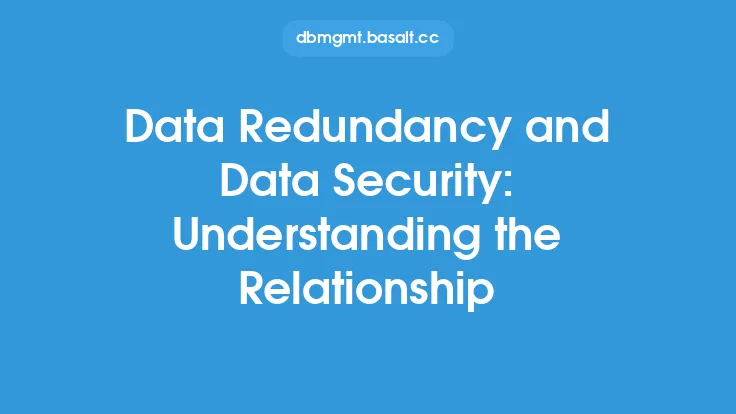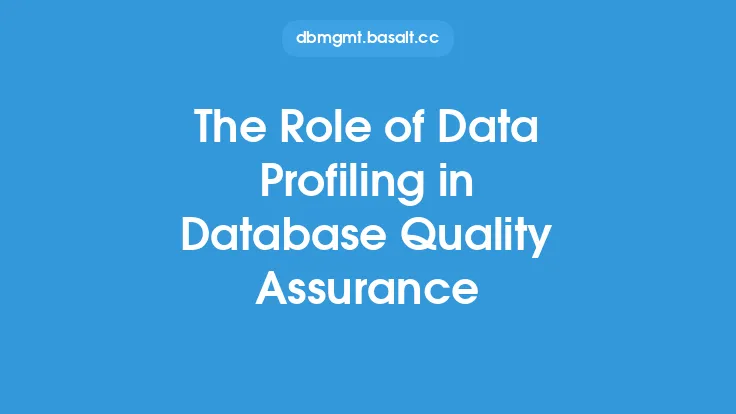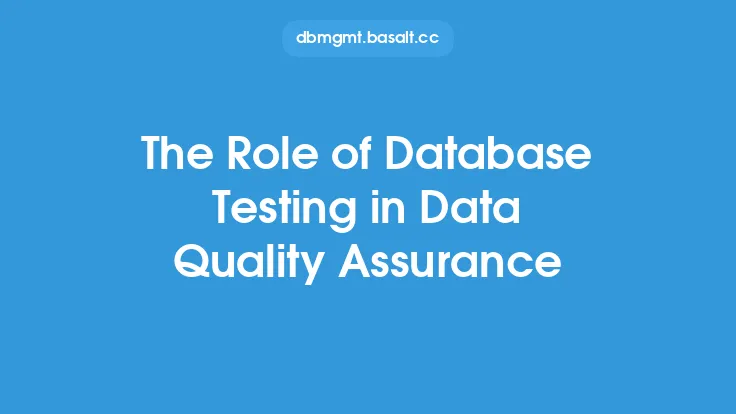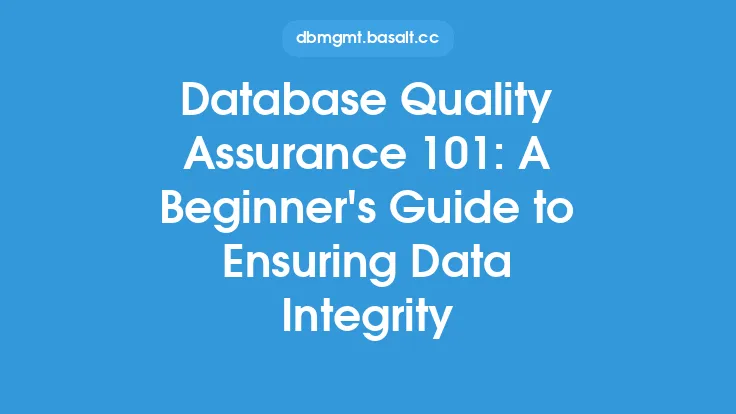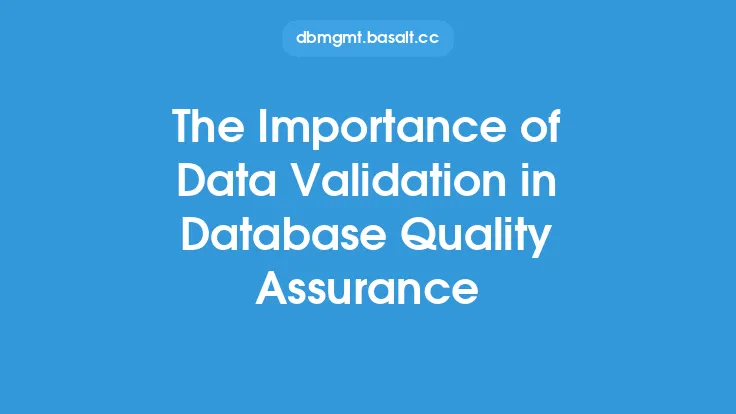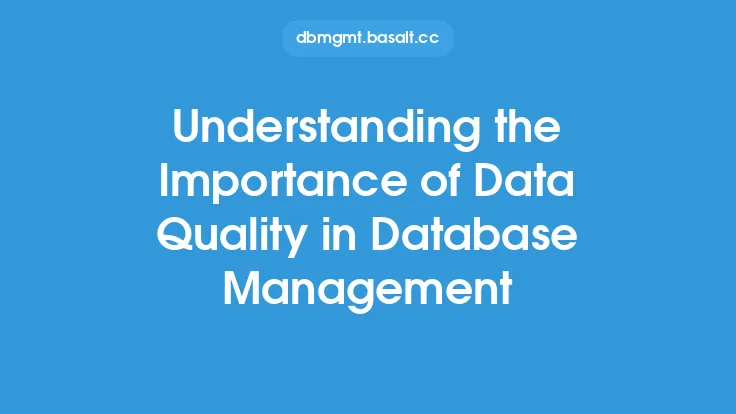Database quality assurance is a critical aspect of database administration, as it ensures the accuracy, completeness, and consistency of data stored in a database. However, another crucial aspect of database administration is data security, which involves protecting the database from unauthorized access, use, disclosure, disruption, modification, or destruction. In this article, we will explore the connection between database quality assurance and data security, and how they are intertwined to ensure the overall health and reliability of a database.
Introduction to Database Quality Assurance
Database quality assurance involves a set of processes and procedures designed to ensure that a database meets the required standards of quality, integrity, and reliability. This includes data validation, data profiling, data cleansing, and data normalization, among other techniques. The primary goal of database quality assurance is to ensure that the data stored in a database is accurate, complete, and consistent, and that it meets the requirements of the organization.
Data Security Fundamentals
Data security, on the other hand, involves a set of measures designed to protect a database from various types of threats, including unauthorized access, data breaches, and other forms of cyber attacks. This includes techniques such as encryption, access control, authentication, and backup and recovery, among others. The primary goal of data security is to ensure that the data stored in a database is protected from unauthorized access, use, or disclosure, and that it is available when needed.
The Connection Between Database Quality Assurance and Data Security
While database quality assurance and data security are two distinct aspects of database administration, they are closely connected. High-quality data is essential for ensuring the security of a database, as inaccurate or incomplete data can create vulnerabilities that can be exploited by attackers. For example, if a database contains duplicate or inconsistent data, it can create opportunities for attackers to gain unauthorized access to the database. On the other hand, robust data security measures are essential for protecting high-quality data from unauthorized access or disclosure.
Technical Aspects of Database Quality Assurance and Data Security
From a technical perspective, database quality assurance and data security involve a range of techniques and tools. For example, data validation involves checking data against a set of predefined rules and constraints to ensure that it is accurate and complete. Data encryption, on the other hand, involves converting data into a code that can only be deciphered by authorized personnel. Access control involves restricting access to a database based on user identity, role, or other factors. Backup and recovery involve creating copies of data and restoring it in case of a disaster or other type of data loss.
Best Practices for Ensuring Database Quality Assurance and Data Security
To ensure the quality and security of a database, several best practices can be followed. These include implementing robust data validation and data profiling techniques, using encryption and access control to protect data, and creating regular backups of data. Additionally, organizations can implement data normalization and data cleansing techniques to ensure that data is consistent and accurate. Regular security audits and penetration testing can also help identify vulnerabilities and ensure that data is protected.
The Role of Database Administrators in Ensuring Database Quality Assurance and Data Security
Database administrators play a critical role in ensuring the quality and security of a database. They are responsible for implementing and enforcing data quality and security policies, as well as monitoring and maintaining the database to ensure that it is running smoothly and securely. This includes tasks such as data backup and recovery, security auditing, and performance tuning, among others. Database administrators must also stay up-to-date with the latest technologies and techniques in database quality assurance and data security to ensure that the database remains secure and reliable.
Common Challenges and Solutions
Despite the importance of database quality assurance and data security, several challenges can arise. These include data breaches, data loss, and system downtime, among others. To address these challenges, organizations can implement a range of solutions, including data encryption, access control, and backup and recovery. Regular security audits and penetration testing can also help identify vulnerabilities and ensure that data is protected. Additionally, organizations can implement data quality metrics and monitoring to ensure that data is accurate, complete, and consistent.
Conclusion
In conclusion, database quality assurance and data security are two critical aspects of database administration that are closely connected. High-quality data is essential for ensuring the security of a database, and robust data security measures are essential for protecting high-quality data from unauthorized access or disclosure. By implementing best practices such as data validation, data encryption, and access control, organizations can ensure the quality and security of their databases. Additionally, database administrators play a critical role in ensuring the quality and security of a database, and must stay up-to-date with the latest technologies and techniques to ensure that the database remains secure and reliable.
